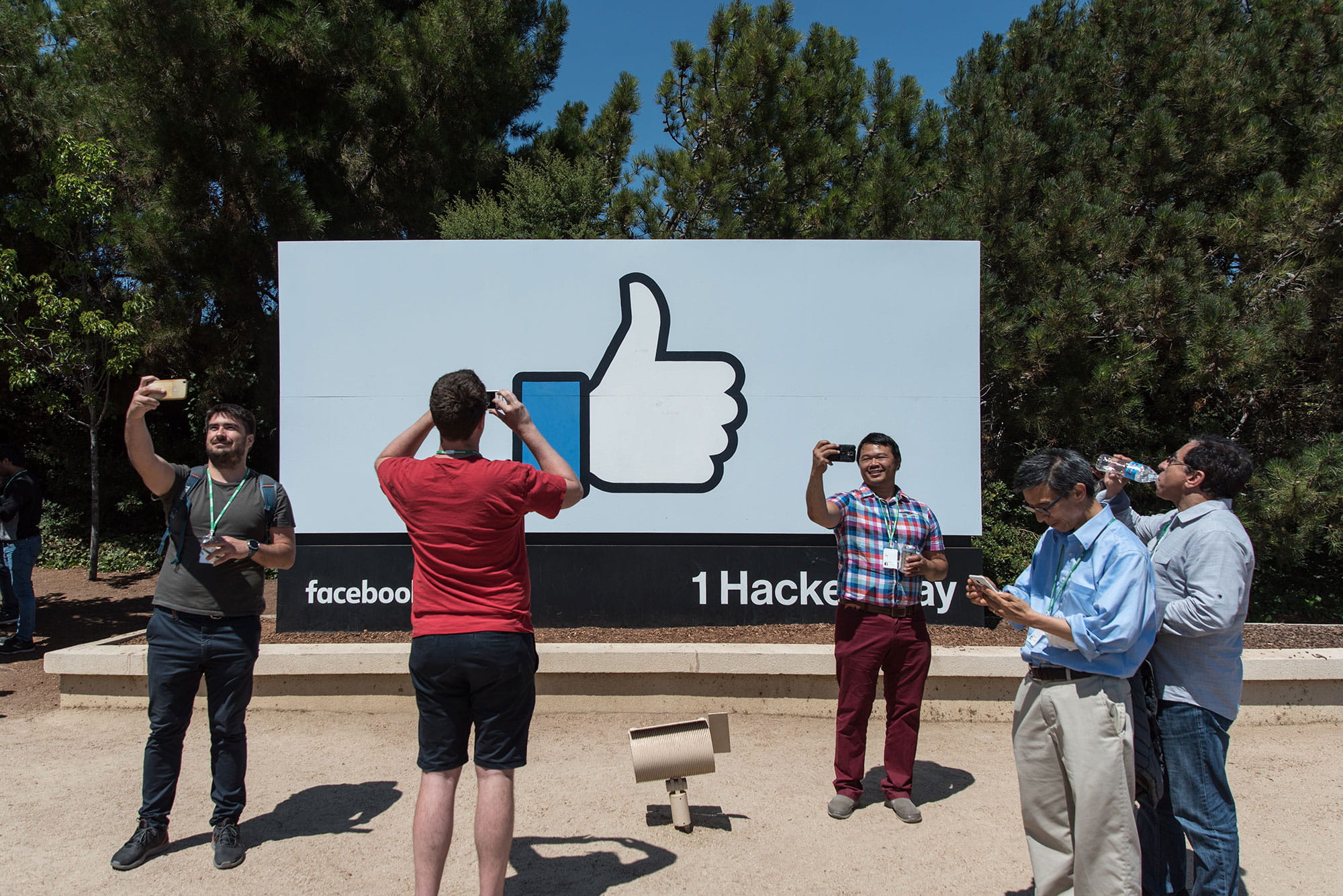It wasn’t that long ago that Facebook proudly touted the motto “move fast and break things” as the hallmark of its unstoppable growth. And every time Steve Jobs conjured up the next miracle machine from his bag of tech tricks, it was couched in Apple’s credo of nonconformity, “Think Different”.
But times have changed, and nowadays these slogans might be better applied to the actors in the political arena who are working hard to put the brakes on the tech giants that have run amok. Heavy fines, prosecutions, and even breaking up the monolithic platforms are all on the table.
In October, the United States Department of Justice and 11 states sued Google for violations of antitrust laws. Another antitrust suit, against Facebook, is being prepared. Others in the US are eagerly awaiting the report by the US market watchdog, the Federal Trade Commission (FTC), on the hundreds of takeovers by the “Big Five” tech companies between 2010 and 2019. And with Joe Biden having won the presidential election, it is clear that the tech giants can expect more regulation.
Meanwhile, in Europe, the knives are out too. Germany has opened an investigation into abuses of “brandgating” policies by Amazon and Apple, with Amazon being accused of making it impossible for third-party resellers to sell Apple products on Amazon. In France, publishers filed a complaint with that country’s market watchdog concerning Apple’s new privacy changes, which they argue are anticompetitive because they could keep advertisers from accessing Apple users’ personal data while still allowing Apple itself to do whatever it wants with that same data. The Italian government is taking a hard look at Google’s dominance in the advertising market in the wake of a complaint alleging that it has created unfair market conditions.
And that’s just the beginning. In December, the European Commission will be presenting the Digital Services Act, a sweeping set of measures geared to take down the power of Big Tech. Margrethe Vestager, Executive Vice President of the European Commission, wants to impose the rules on the big companies “that they should have been following themselves already”. In the Netherlands and France, there have even been recent calls for potentially breaking up the most powerful tech companies.
Why does the whole western world seem to be taking up arms against Big Tech? How do governments intend to do that? And is it a fight they can even win?
What exactly is the problem with Big Tech?
They don’t call it Big Tech for nothing – it really is big. It’s hard to imagine just how big, especially when you think back to just 20 years ago, when Amazon and Google were small startups and Apple stood on the brink of bankruptcy. Facebook didn’t even exist yet. Only Microsoft could have been called a giant at that time.
What a different world it is today, when the Big Five tech firms are among the biggest companies in the world, with a total market value of nearly €6tn (that’s six billion times a thousand). More than France, the United Kingdom and Italy’s combined tax income in a year. And despite the coronavirus pandemic (or rather because of it, actually) total profits of the Big Five are only going up – $50bn in the last quarter alone.
This is problem number one: they have too much power in the market.
For instance, nine of Google’s services (including Android, Chrome, Maps and Google Drive), have over a billion users.
All the data that it collects from those users – websites visited, metadata from saved files, apps downloaded, and so on – gives Google near-perfect market information. Google sees what people want and can use that knowledge for its own products. That’s part of the reason why Google and Facebook have together taken over two-thirds of the online advertising market.
When you have a handful of self-selected gatekeepers for news stories, social contacts, internet sellers, academic literature and apps, the social influence of these companies takes on grotesque proportions
A few more telling figures: one-third of the world population uses Facebook at least once per month; Apple has sole say over what software can and cannot go on 1.5 billion of the world’s electronic devices; Amazon single-handedly accounts for half of all online purchases in the United States; corporate and governmental institutions alike are chained down to Microsoft operating systems.
All that means real muscle, and these companies are not afraid to flex it. They maintain their dominance by promoting the services in their own corrals, on their own platforms, more than those of rival companies, or simply buying their competitors (which is what happened to WhatsApp and Instagram), or stealing ideas from them, or running experiments on them, pushing unfavourable contracts on people who are dependent on the platform, and harvesting valuable data from people and companies that can’t get along without their products.
Hence, the second problem: they are unravelling the fabric of society.
When you have a handful of self-selected gatekeepers for news stories, social contacts, internet sellers, academic literature and apps, the social influence of these companies takes on grotesque proportions. Impenetrable algorithms determine a very great deal of what information you see on Google, YouTube and Facebook and how that information is ranked.
With the proverbial push of a button, a tech company can make a news story inaccessible (Twitter), make a politician pay twice as much for advertising as his opponent does (Facebook), or delete a popular account (YouTube), without ever being held to any real accountability for doing so.
Governmental institutions have been bumping up against that power more and more in the last few years. Now, as every election comes along, we bite our fingernails watching to see how these companies are going to maintain order on their gigantic platforms. Google and Apple are the ones telling the government what to do when it comes to making their contact-tracing apps.
The European Commission has, so far, failed to convince Apple and other tech companies to pay their fair share of taxes, even as inequality grows and the pandemic ravages national treasuries. European Commissioner for Internal Market Thierry Breton recently complained that Big Tech is “too big to care” about any measures that governments might propose.

How did tech companies get so big?
There’s a simple explanation: no one lifted a finger to stop them. Antitrust law is designed to ensure that no company gets too big and powerful, by preventing big players in an industry from running rampant with mergers and takeovers. But until recently, enforcement of these laws has been extremely lax, both in the United States and the European Union (EU) – particularly in the tech sector, where they are almost never blocked.
Over the past 20 years, Amazon, Apple, Facebook and Google have swallowed up more than 500 companies, which is what has fuelled their growth into the titans we know today. It’s true that they have seen the occasional fine imposed over the last few years. But the €4.34bn fine that the European Commission imposed on Google for breaching antitrust rules with its Android mobile operating system amounts to little more than a speeding ticket for a company with annual sales of €115bn. And next to that, the €250m Amazon was forced to pay in back taxes and the order Apple was hit with to repay €13bn in tax advantages seem like small change.
In addition, internet platforms enjoy other exemptions that “ordinary” companies don’t have, such as limitations on liability. If a shoe store sells counterfeit Nikes, the owners of the store will be prosecuted. If a newspaper prints damaging lies, it can be sued. But if Facebook spews out an endless stream of disinformation, racism and violent content on to everyone’s computer, it will not be liable – at least not at first. This is what has made enormous growth at very low costs (because of the lack of moderation) possible.
But the boom times may be coming to an end.
What exactly is going on in the United States?
At the beginning of October, the US Subcommittee on Antitrust, Commercial and Administrative Law published a large-scale investigation into the ways that the market dominance of Big Tech is impacting the country’s economy and democracy.
The investigators concluded that these companies “have become the kinds of monopolies we last saw in the era of oil barons and railroad tycoons”. The Subcommittee did propose a number of measures for breaking up that power, even if those raise questions of their own.
For example, the call to prohibit “certain dominant platforms from operating in adjacent lines of business”. But what qualifies as an “adjacent line of business”, and in what situations? Take, for example, the dating feature on Facebook that just launched in Europe. Is Mark Zuckerberg’s platform now muscling in on OKCupid and Tinder’s territory? Or is dating just a logical next step after profiles, friends lists and the ability to chat up millions of people? The report doesn’t really say.
The investigators also put some harder intervention methods on the table, like breaking up the tech companies.
But actually doing that by legislative fiat would be no easy task. Can you really see Google as part search engine, part map application, and part advertising service, and split it up down those lines? What happens when Apple is a separate hardware manufacturer that produces MacBooks and iPhones, separated from an independent software arm that develops the iOS operating system and the App Store?
And with Facebook, where do you even start? Will you end up with dozens of smaller companies, each with a few hundred million users, instead of one platform to rule them all, with 2.7 billion profiles in its thrall? The bottom line is that this is a proposal that has to be thought through a lot further before it can lead to an effective intervention.
“In the unlikely event that regulators required, for example, Facebook to split off Instagram or WhatsApp, or Google had to break off YouTube, the newly independent companies would have to rebuild their technical and advertising infrastructure,” says US attorney Deborah Elman, a specialist in antitrust law. But, she says, that still won’t stop Big Tech from coalescing back together again. “As long as it’s profitable, the companies will find ways to work together, even if they must do so under separate corporate umbrellas, to maximise the revenue stream.”
At least 37% of the sellers on Amazon are completely dependent on the platform as their sole source of income
An alternative measure that the Subcommittee proposes is increasing the budget of the US regulatory authority, the FTC (the government body that approves or blocks large-scale mergers and takeovers), in combination with increasing fines and penalties. A US law dating from 1890 stipulates that a person who attempts to monopolise an element of US trade can be hit with a fine of (in the latest version of the act) up to $100m. Today, that’s no more than half a day’s work for a company like Facebook.
Finally, the Subcommittee’s report urges Congress to amend the Sherman Act. Right now, if the US government wants the courts to block a merger of two mega-companies, it has to demonstrate that the combination will present a major risk of monopolisation. The report concludes that this burden of proof should be reversed, and put on the companies, if a takeover will result in a market share of over 30%. In other words: first tell us why your merger is not going to be a threat to the free market.
This is a smart plan, says professor emeritus of economics and business Hans Schenk of Utrecht University. “The impact will no doubt be that fewer mergers and takeovers will be permitted, alongside a simultaneous preventive effect.”

How is Big Tech responding?
Facebook and Apple point to the competition, which uses exactly the same profit models as they do. And huge mergers happen in other markets as well, says Facebook. Google also takes 30% of the income from its own version of the App Store, says Apple. But you could also say that it’s this eye-watering commission that ensures that Google and Apple are the only two companies able to survive in the software market for mobile phones.
Web retailer Amazon points to markets where, it claims, the concentration of power is even greater – banks, the airline industry and telecom companies, to name just a few. But here, the giant is misrepresenting its dominance by comparing itself to any and every shop, from the internet to Main Street. Viewing Amazon like that, you would conclude that it accounts for only 4% of all sales in the US, whereas, if you only look at the digital domain, Amazon’s market share is actually 44%.
Amazon also asserts that the partnership between the online store and the businesses that use Amazon’s platform to sell their products is “mutually beneficial” – implying that the relationship is on equal footing. But at least 37% of the sellers on Amazon are completely dependent on the platform as their sole source of income.
Google is quick to point out the traumatic impact any intervention would have, first and foremost, on the user. “The goal of antitrust law is to protect consumers, not help commercial rivals,” Google writes on its blog.
The all-powerful search engine proclaims that a free market without robust government intervention is beneficial to “small businesses across America”, yet it’s Google itself that has by far the most to gain, by orders of magnitude, from weak enforcement. Google has put the billions that it earns with the “free” data that it gets from its users into developing self-driving cars, quantum computers and advertisements, the company says.
But the “near-perfect market information” that Google is already harvesting from text processing, photos and location data will only increase once it starts offering this advanced technology “for free”.
Do the US plans have any chance of success?
Both Democrats and Republicans want to take action against Big Tech – something virtually unheard of in these days of division in US politics. But they disagree on what form that action should take. That report we talked about above? At the last minute, the Republican members of the Subcommittee refused to sign it. The Democrats want stronger regulation; the Republicans want a stronger watchdog. “We prefer [...] the scalpel of antitrust, rather than the chainsaw of regulation,” wrote Republican representative Ken Buck in a “counter-report”.
When president-elect Joe Biden takes office in January, the report will be a roadmap for his antitrust policy, one of his staffers has hinted.
A working group that Biden has set up with former presidential candidate Bernie Sanders has not ruled out breaking up Big Tech, albeit as a “last resort”. Biden’s administration will most likely focus on more robust regulation in favour of a watchdog taking a more haphazard, policing approach.
This represents a clear break from the thinking on market competition in the past 20 years. Now, it’s not just a question of what dominance in tech means for the consumer (“will more market power allow the company to increase prices?”); instead, a more crucial question is being asked: whether having one company or a few companies possessing so much power is good for society.
Both Democrats and Republicans want to take action against Big Tech – something virtually unheard of in these days of division in US politics
“Ever since the Clinton administration, the enforcement of antitrust laws in the United States has been on the back burner,” says professor Schenk. “The report can be seen as a major rethinking of the weak knees of these past decades.”
Looking at the number of antitrust suits filed against Google in recent years, we can see that the pressure on Big Tech is being ratcheted up, and Facebook can expect to be the next target. In these lawsuits, we see a recurring theme: abuse of power. Google is accused of paying Apple billions of dollars a year to ensure that Google remains the default search engine on Apple products. This is damaging to competition, says the prosecution. We can expect this case to drag on for years – that is, unless a settlement comes along before that.
What’s happening in Europe?
On top of all this, the EU faces an additional problem: growing dependence on US companies. The strategic value of the tech sector is growing. Just look at how the United States, along with an increasing number of European countries, are trying to keep Chinese tech company Huawei out of their markets, or how the United States and India are trying to shut down Chinese video app TikTok. More and more, tech companies are finding themselves as pawns in political chess matches.
Right now, both the United States and China are investing billions in their tech sectors and in research and development. Each will do anything to make sure that their robotics technology, artificial intelligence, chip industry and other major tech sectors stay ahead of the rest of the world – and each other. Or, at the very least, that they don’t become too dependent on other countries for their innovation. In that department, it must be said that Europe is really playing catch-up with the US and China.
One thing you hear increasingly often from the EU is the call for “digital sovereignty”. And one way to help its own industry is to break up the power of the tech giants, the US ones in particular.
That’s the context in which you should see any new legislation. Without a doubt, the most important one in the pipeline is the Digital Services Act (DSA), which the European Commission will present next month. Much of the plans for it are still in flux, but it promises to be a very sweeping and ambitious package of legislation.

What’s in the Digital Services Act?
That much we don’t know for sure, but the DSA is being designed to both break through the monolithic power blocks in the market and reverse the unravelling of society.
Rumours have it that the EU will soon be drafting a “hit list” of up to 20 tech companies that should be held to stricter rules than smaller companies. These would then, for example, be required to share data with competitors, so that smaller players would also be in a position to build their user base. In Facebook’s case, for example, the legislation would force the company to allow users to release their newsfeed for use in another app.
All this is intended to reduce user dependence on these few, major parties. If the companies still prove to be too powerful after all that, then the European commission wants to leave open the option to break them up, to create more competition on the European market and to give, for instance, Dutch, Finnish or French companies more opportunity to grow.
The blunt instrument of regulation may turn out to be the biggest government intervention in the corporate world in over a century
Besides this, the Big Tech companies will have to be more transparent about how their suggestion systems and artificial intelligence work. The companies themselves should be looking at the social and societal impacts of their systems, but under this legislation independent researchers would be doing the same thing. For example, if the YouTube algorithm starts suggesting lots of conspiracy theory videos, this has to be identified and counteracted more quickly.
The draft legislation also provides for the introduction of a new, European-level regulatory body with sweeping authority to enforce the rules of the DSA, with or without the cooperation of the national regulatory institutions. Obviously, such a regulatory body would have to be able to hand out fines that would give even a major tech company pause.
Do the European plans have any chance of success?
“One of the biggest problems is that the DSA is really about everything. They’re trying to hit a hundred birds with one stone,” says Joris van Hoboken, a professor of law at the Vrije Universiteit Brussel (VUB). It could turn into an extremely complicated legislative process – which would also make the DSA a sitting target for Big Tech lobbyists, who certainly have the financial reserves to go after the new legislation in December.
Over the last 20 years, Big Tech has effectively shrugged off all fines and all barking and biting watchdogs, as they have amassed vast financial resources and obtained explosive influence in society. It may be that the blunt instrument of regulation will turn out to be the biggest government intervention in the corporate world in over a century.
But whether rigorous US legislation introduced by Biden or the all-encompassing European Digital Services Act in Brussels will actually break Big Tech’s stranglehold is an open question. There’s a lot at stake. Not only for the big companies, but, more importantly, for us and our democracy.
Translated from the Dutch by Kyle Wohlmut and Joy Phillips.
 About the images
In May 2018, Forbes named the valley south of San Francisco as "California’s hottest new tourism hotspot". Intrigued by this statement, photographer Alessandro Gandolfi (Parallelozero/INSTITUTE) decided to explore the area, focusing particularly on tourists. Why did they decide to choose it as their holiday destination? Was it because of Google’s familiarity, Facebook’s success, or Apple’s market penetration of the entire world? Was it for the allure and hope for success those companies embodied?
About the images
In May 2018, Forbes named the valley south of San Francisco as "California’s hottest new tourism hotspot". Intrigued by this statement, photographer Alessandro Gandolfi (Parallelozero/INSTITUTE) decided to explore the area, focusing particularly on tourists. Why did they decide to choose it as their holiday destination? Was it because of Google’s familiarity, Facebook’s success, or Apple’s market penetration of the entire world? Was it for the allure and hope for success those companies embodied?Their headquarters (as well as Adobe, eBay, HP, Intel, Tesla, Twitter, Uber, and many others) in the area have become places of pilgrimage, secular shrines in front of which tourists can take a selfie as they do in front of the Taj Mahal, the Eiffel Tower, or a beach on the Maldives.
Dig deeper
 Coronavirus apps show governments can no longer do without Apple or Google
Google and Apple forced governments to follow tighter privacy standards for coronavirus contact-tracing apps. This sounds like good news, but it also reveals our dependency on Big Tech.
Coronavirus apps show governments can no longer do without Apple or Google
Google and Apple forced governments to follow tighter privacy standards for coronavirus contact-tracing apps. This sounds like good news, but it also reveals our dependency on Big Tech.
 The most important technology critic in the world was tired of knowledge based on clicks. So he built an antidote
Evgeny Morozov was a critic of Big Tech long before it became fashionable. Then he built The Syllabus, an online system that breaks the laws of the attention economy. At a time when misinformation about Covid-19 can spread faster than the virus itself, his system is even more important. I was with him when he first shared it with the world.
The most important technology critic in the world was tired of knowledge based on clicks. So he built an antidote
Evgeny Morozov was a critic of Big Tech long before it became fashionable. Then he built The Syllabus, an online system that breaks the laws of the attention economy. At a time when misinformation about Covid-19 can spread faster than the virus itself, his system is even more important. I was with him when he first shared it with the world.



